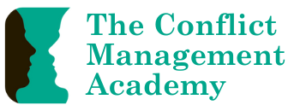Brené Brown made shame accessible in her work on shame and vulnerability, and this book continues the exploration of that emotion but in a slightly different way. This book focuses on the harm that shame and shaming can do, and how shame is manipulated in social and political contexts. It also considers the problem of shamelessness. There is also a chapter on the positive aspects of shame and shamelessness.
Keen states in the introduction: “Understanding shame can help us greatly in comprehending the habit of buying – and selling – bogus or magical solutions for complex problems… we need to investigate the process by which shame is loaded onto people as well as the varied strategies of those who offer to relieve this shame. Revealingly, the loading and relieving have often come from the same source…”. He also explains that shaming often chokes off curiosity, narrows the space for understanding of others, and can even provoke violence.
Chapters cover shame in contexts such as war, criminality, politics, religion, colonialism, and the economy. There are in depth analysis of apparently ‘shameless’ people including Trump, Boris Johnson, and Adolf Eichman. The book includes perspectives from anthropology, psychology, philosophy, sociology, theology, and history. It also considers the role of social media in facilitating ‘a fever of electronic finger-pointing’.
I found this book fascinating; in particular, the taking of shame outside of the individual and considering the social and political structures that benefit from shaming and frequently perpetuate it; and also the relationship between shame, values and other emotions. The book does refer to Braithewaite’s reintegrative shaming (which is what I tend to think of when I think about shame and conflict from a restorative justice framework), but adds so much depth and nuance to this. I highly recommend this book to everyone as a means to understand the important role of shame in today’s society and politics.

